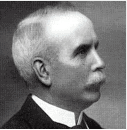Once, whilst I was working for a large international enterprise, I received a company edict, from the IT director, that two megabytes of memory were sufficient to run Windows-based PCs. So firm was this edict that it was made it part of corporate IT strategy. PCs were not to be purchased with more than two megabytes of memory. It was some years ago, but even then it was absurd.
I phoned the manager of the department that was in charge of setting the standards for the configuration of PCs, to suggest to him that there may have been a clerical error in typing the edict. He was somewhat apologetic, but said the idea had come directly from the IT director who was extraordinarily keen on the idea and was already proudly calculating the money he would save the company. He had persisted against all advice but was determined on the policy, and so we all had to ‘go through the motions’ of implementing it. He added that as it was the first idea he had come up with since he had taken on the job, and it seemed wise to encourage and support him.
The edict caused me little more than inconvenience. All I had to do was to install some PCs in the purchasing department to the new regulated memory size. There was a furious response, and much laughter when I showed them the edict. They knew what was required. Memory was renamed ‘computer sundries’, or’ miscellaneous electronic equipment’ by these good people and supplies then flowed in as usual.
The incident did serve to suddenly awaken my interest on the man who had issued the edict. By all accounts, he lacked any qualities necessary for such a demanding role. His social skills were so poor that only the DEC salesman would willingly talk to him. He had to call his secretary over to access and read his email (it had to be printed out for him). He was helpless in any challenging practical or intellectual task. He apparently spent his days buying and selling his own shares on the stock exchange, with little success..
How, I wondered, had he progressed so well through the company to achieve his exalted status?.
I asked a manager who had known him for many years how on earth he had reached the exalted ranks of IT director. He shook his head sadly, and spoke coarse words that have stayed with me since, as they displayed an elemental truth.
‘Ah well, they say that the biggest turds always rise to the top of the septic tank’.
At the time I was taken aback by this old saying of army origin, which I apologise for repeating verbatim, but it ..er.. stuck in the mind, and he was, I think correct.. I then spoke to as many people as I could and a consistent story emerged. .
‘Oh yes, poor Tony. He was a bit of an oddball he was. I was persuaded to take him into my team by a colleague. I was told he was a good worker if he got the right opportunities. Was he hell. He sat around dreamily, and he had such repulsive personal habits that it used to upset the team. Nobody would work with him. It was getting on my nerves too. There seemed no good way to get rid of him so I got him promoted.’.
‘You did what?’.
‘Yup. You don’t imagine it is possible to sack a member of staff for incompetence do you? We’d have almost nobody left. What do you imagine the unions would say? The only way to get rid of a member of your team that you don’t want is to promote him. Onwards and Upwards, they say. I phoned a colleague, and told him he was a good worker if he got the right opportunities’.
‘Do you ever recommend people who are good at their job for promotion?’ .
‘Are you kidding, and lose them immediately? I need to retain good hard-working people in my team.’.
And so it went on. Everybody I spoke to gave me the same story. Tony made remorseless progress through the tiers of IT management by the simple technique of picking his nose whilst staring at the screen, and grunting sporadically like a sow in heat.
Fortunately for Industry, it is not every manager within a large company, or government department, that has achieved his promotion this way. I’ve met many talented managers who have made enormous personal contributions to the well being of the enterprise for which they work. It is, however the minority who are promoted far beyond their talents that interests me the most, for their unintended contribution to the rich comedy of the workplace. How did they get there? Is there a whole range of group processes that cause unlikely people to be propelled way beyond their level of incompetence? Is there a particular talent that goes unrecognised by you or I, but which turns an ordinary person into a management X-man, with a sort of special management power only visible to another initiate?





Load comments